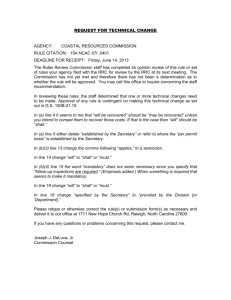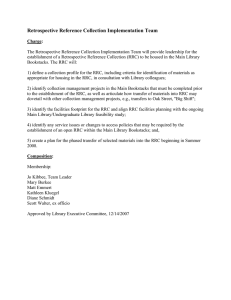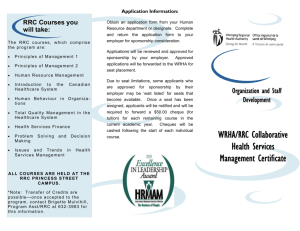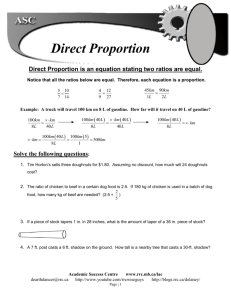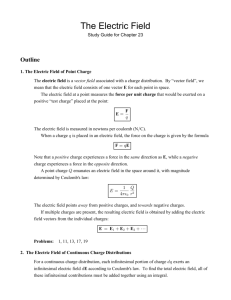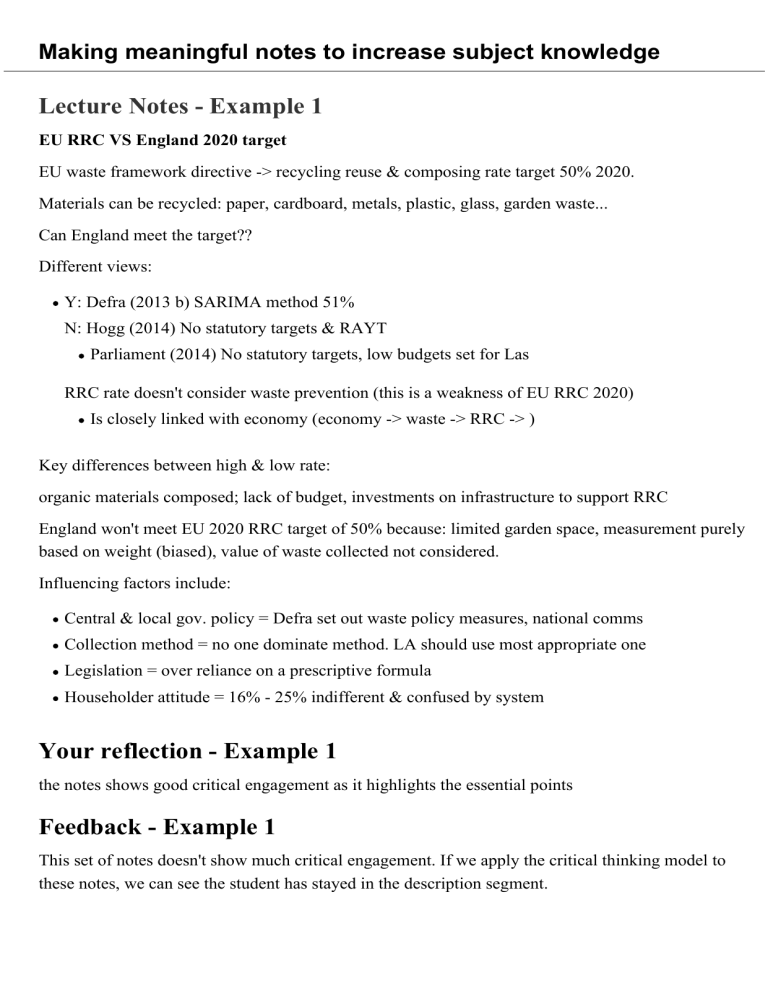
Making meaningful notes to increase subject knowledge Lecture Notes - Example 1 EU RRC VS England 2020 target EU waste framework directive -> recycling reuse & composing rate target 50% 2020. Materials can be recycled: paper, cardboard, metals, plastic, glass, garden waste... Can England meet the target?? Different views: Y: Defra (2013 b) SARIMA method 51% N: Hogg (2014) No statutory targets & RAYT Parliament (2014) No statutory targets, low budgets set for Las RRC rate doesn't consider waste prevention (this is a weakness of EU RRC 2020) Is closely linked with economy (economy -> waste -> RRC -> ) Key differences between high & low rate: organic materials composed; lack of budget, investments on infrastructure to support RRC England won't meet EU 2020 RRC target of 50% because: limited garden space, measurement purely based on weight (biased), value of waste collected not considered. Influencing factors include: Central & local gov. policy = Defra set out waste policy measures, national comms Collection method = no one dominate method. LA should use most appropriate one Legislation = over reliance on a prescriptive formula Householder attitude = 16% - 25% indifferent & confused by system Your reflection - Example 1 the notes shows good critical engagement as it highlights the essential points Feedback - Example 1 This set of notes doesn't show much critical engagement. If we apply the critical thinking model to these notes, we can see the student has stayed in the description segment. Making meaningful notes to increase subject knowledge The student noted down many details from the lecture but has not identified the key points. The notes don't demonstrate any reflection on the content covered in the lecture. These notes may not be that helpful when the students revisit the material for assessment or revision. Lecture Notes - Example 2 SOEE1111 Sustainable development, week 3 lecture on current recycling issues, England Background: EU rWFD (EU, 2008) recycling, reuse & composting (RRC) rate, 50% 2020 target England: Yes Defra (2013b) 51% SARIMA method Why Defra Y, Parliament N? NO Hogg (2014), Parliament/tutor's stance. Do I agree? Reasons? Influential factors: Things will influence RRC: 3 key 1. Gov policy 2. LA collection method 3. Legislation + 2 others 4. Urbanisation 5. Householder attitude Reasons for failure: England = ? UK? Biased? Why? Main R England fails: Limited garden space Measure on weight Ideas maybe useful in future: Low VS high LA: Collection systems Budget Infrastructure Other details: materials to recycle, different formula = different RRC rates, economy's impact on RRC Brexit? Summary: The chance of England failing the EU 2020 recycling target is high due to the limitations on RRC measurement. Actions! 1. Read (EU, 2008) Hogg (2014), Parliament (2014) 2. Check RRC definition, UK overall situation, 3. Research EU good practice what can we learn from the high RRC countries? Your reflection - Example 2 The notes is a lot more comprehensive and it provides a follow up action on what to do after the lecture Feedback - Example 2 This set of notes shows more critical engagement. If we apply the critical thinking model to these notes, we can see the student has moved beyond just noting down exactly what they heard in the lecture (description). It identifies the key points from the lecture but also goes beyond by asking critical questions and reflecting on the lecture content (analysis). It uses headings, making it an easy structure to follow when revisiting the notes. It also has a separate summary and actions section, which shows the student's intention to build on knowledge learnt from the lecture (start of evaluation). This set of notes will help the student better develop their subject knowledge and prepare for assessments.

